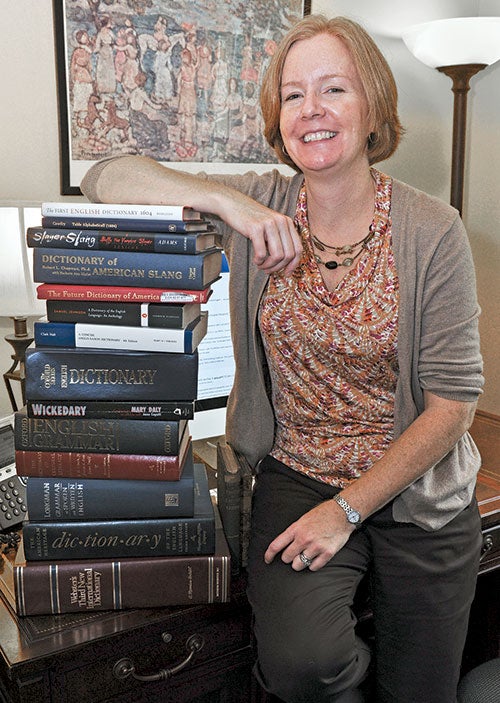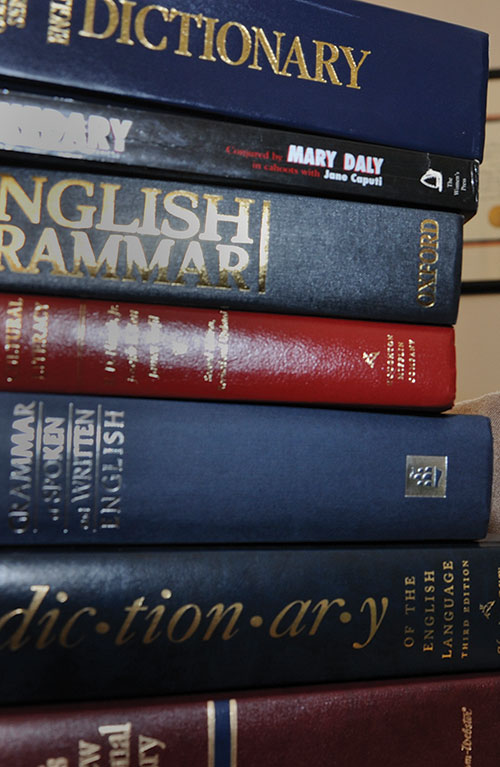launch
COLLECTING WORDS
 photo: Roadell Hickman
Kimberly Emmons
photo: Roadell Hickman
Kimberly Emmons
Kimberly Emmons is a self-described "language geek" who unabashedly admits reading The Oxford English Dictionary for fun.
For Emmons, PhD, associate professor of English and director of Case Western Reserve's writing programs, words are whimsical puzzle pieces. The evolution of each one provides insights into our ever-changing world.
"Hello," for instance, became a ubiquitous greeting (replacing the more formal "How do you do?") thanks to the advance of technology—or more precisely, after Thomas Edison declared in 1877 that the word would be a suitable greeting on a new invention: the telephone. Edison's recommendation also contributed to a bit of social leveling, as people began saying "hello" to meet strangers without waiting for a proper 19th-century introduction.
"It's history in action," Emmons said. "The way language is changing is a microcosm of how we get from here to there."
And that's the approach she brings to a class she teaches on the "History of the English Language." It's one that routinely surprises and delights students as they trace the history of words through topics they choose themselves.
In her final semester, Theresa Smetona (CWR '14) examined the language of attractiveness—especially the societal implications of how women's beauty has been framed across centuries.
Consider the word "pretty." In Old English, it was spelled in various ways, including "prættig," and originally was used to describe men or women as "cunning and crafty." But by the mid-1400s, "pretty" was used mainly to describe a woman or child as attractive, and "cunning and crafty" were dropped from its meaning.
To Smetona—who earned bachelor's degrees in English and Spanish and recently began teaching English in Madrid, Spain, to elementary and middle school students—the shift was about so much more than one six-letter word.
"I found the change in meaning and application to symbolize the still-prevalent tendency to evaluate women based on their physical rather than mental qualifications, which obviously devalues them overall," she said.
Over the years, students have explored the history of profanity and racial epithets, the social and cultural value of dialects such as English cockney and African-American vernacular, and the evolution of typography.
Those kinds of analyses, Emmons said, are exactly the point of her class—to learn about culture, politics and linguistics through the roughly 1,500 years of the English language the course covers: How does dialect dictate social class? How does language divide people or bring them together? What biases are imparted in the words you use?
As a child, Emmons envisioned becoming a poet or novelist. But an Old English course at the University of Washington awakened a fascination with how the language of Beowulf, from roughly 1000 A.D., evolved and became the English spoken, written, texted and tweeted today.
Now, Emmons' collection of old and quirky dictionaries helps fill her office bookshelves.
"I like the idea that we make dictionaries," she said. "We collect words." —BILL LUBINGER






